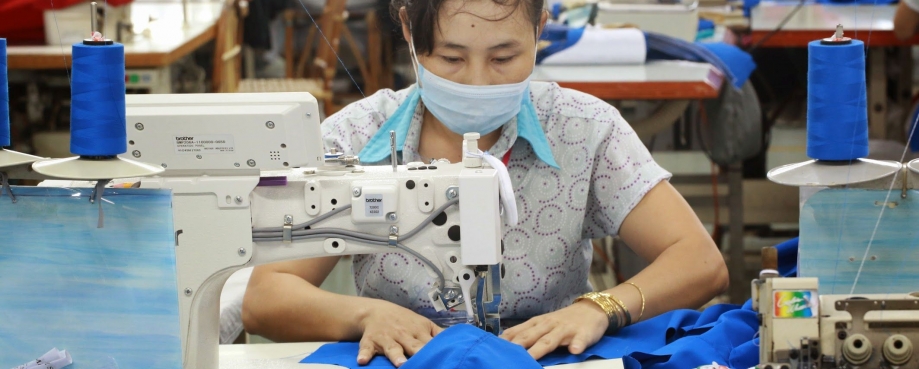
Directors and board members have oversight for tackling modern slavery. But due to many pressures, where is this on the boardroom agenda, asks Cindy Berman, ETI's Head of Knowledge and Learning.
New advanced training course: Human rights due diligence
This blog first appeared on the Thomson Reuters 'Financial and Risk' blog pages on 8 July
ETI's new Base Code Guidance: Modern slavery - practical guidance for brands and retailers.
Take part in a new survey by the Ethical Trading Initiative and Hult International Business School to benchmark corporate leadership attitudes to modern slavery
The UK Modern Slavery Act 2015 requires companies operating in the UK and around the world with an annual turnover of £36m to produce and publish a Modern Slavery Statement.
The statement should set out all the steps the company is taking to ensure modern slavery is not taking place in their operations or supply chains.
One of the most important elements of the legislation is that it must be signed off by Directors or Board members of companies.
But unfortunately, not enough are waking up to the fact that company leaders are accountable for the human rights impacts of their operations and businesses.
"71 per cent of companies saw a high likelihood of slavery in their supply chains."
Cindy Berman
Take part in the survey
How well are companies currently reporting on modern slavery?
Sadly, company performance on modern slavery reporting to date has not been impressive.
Analyzing the first 75 modern slavery statements, the NGO Core Coalition found that only 22 met the minimum requirements of being both signed by a Director and available on the company’s website.
Since then, Ergon Associates has reviewed over 240 Modern Slavery Statements, and has found that with some exceptions, most statements fail to go further than general commitments and bland reference to processes.
ETI has found that most companies are scared and confused about what they should do about their modern slavery statements. Unsure about how to tackle the problem, many are trying to outsource due diligence.
In response, the ETIe have developed a new Due Diligence Framework which many companies are finding helpful.
What is the role of corporate leadership in addressing modern slavery?
In 2015, shortly after the Modern Slavery Act came into effect, the Ethical Trading Initiative (ETI) and the Ashridge/Hult Business School, carried out a study involving 21 large companies to examine corporate approaches to addressing modern slavery.
The study found that 71% of companies saw a high likelihood of slavery in their supply chains and highlighted the importance of leadership in tackling the problem.
Building on this research we are now more specifically looking into the role of corporate leadership in addressing modern slavery, and the impact of the UK Modern Slavery Act on company approaches and practices in relation to labour rights.
The study aims to increase the quality of corporate responses to modern slavery by:
- providing in-depth case studies of corporate practices that are having the greatest impact on improving conditions for workers at risk of modern slavery.
- mapping different perceptions of what constitutes corporate leadership on tackling modern slavery to identify what benchmarks they could use to measure ‘leadership’ in practice.
- offering new insights on how the UK Modern Slavery Act has shaped corporate activities during the first year of its operation.
This survey is open to all companies to participate. Data will be confidential and used only to aggregate responses. We invite you to take part — it will last around 15-20 minutes.
Key findings from the research will be shared in a publicly available report and will be used to develop learning materials by the Ethical Trading Initiative and Hult International Business School to influence the practices of business leaders.
Book our training course: Modern Slavery Act: is your business ready?
The photograph of a Vietnamese garment worker is courtesy of the ILO and is for illustrative purposes only. It does not relate to an actual incidence of modern slavery.
